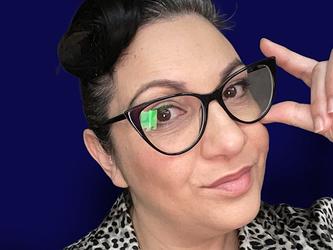The kids are alright: challenges in youth research
“When someone gets it wrong you have to be accepting of that… but try to teach them.”
As I sat moderating a discussion with a group of 16 to 18-year-olds on the topics of the ‘culture wars’, ‘cancel culture’ and ‘Britishness’, they were open and articulate around topics of social equality. Young adults are highly engaged with social equality, confidently discussing their support for the Black Lives Matter movement, the use of pronouns and debating the ethics of ‘cancel culture’. They are also unafraid to stand up for these principles both publicly and privately, online and face-to-face.
Our research suggests that this confidence is often underpinned by a presumption that their values are the right ones. Those who disagree (often characterised as ‘old white men’) tend to be dismissed as misinformed, uneducated or outdated in their views.
Their confidence got me thinking; what if someone in the group feels differently to the majority? Would they feel comfortable enough to speak up and express their views among people who appear so assured that their views are the right ones?
It’s often said that research with children and young people can provide refreshingly honest insight as participants are less likely to censor their thoughts and opinions. But as children tip over into young adulthood, this starts to change. When conducting research with ‘Gen Z’ there is a danger that participants whose views run counter to the majority (or who simply feel less certain) become uncomfortable expressing their perspective.
It’s vital for us as researchers to create an environment that encourages openness, honesty and respect between participants, no matter their views or age. Based on our experience, there are some practical and common techniques that are already used to help young people feel at ease in group research settings:
- Using ‘mini groups’ of three to four participants to allow young people extra time/space to share their thoughts and views and avoid feeling intimidated by a larger group of strangers.
- Try not to be ‘the teacher’, but rather treat young adults as equals, to help them detach from the teacher-student dynamic many of them are so used to and help them understand that the discussion is in no ways a test – there are no right or wrong answers.
- Be creative with your research design. Young people are often more attuned and encouraged by creative activities over direct lines of questioning. Embrace the freedom to use projective techniques, gamify tasks and build in the use of video, photo and drawings to help you achieve your objectives without having to ask the questions to explicitly.
- If appropriate for the research, share some of the discussion questions in advance to give young people the time and space to think through their answers and responses. Particularly on more complex or unfamiliar topics, this gives participants space to develop an opinion and feel confident enough to share that in a group setting.
Beyond these, though, it may be important to complement group-based and discursive approaches with additional methodologies to ensure you hear dissenting views or less well-formed thoughts:
- Friendship depths: It can often feel intimidating for a young person to join research surrounded by strangers and being questioned by an adult. Pairing young people up with a friend is an ideal way to put them at ease, encourage them to share their honest views and provide space for the pair to bounce ideas off one another or trigger shared memories.
- Peer to peer research: This can work nicely as part of a multi-stage research project, giving the researcher time to meet participants in an earlier stage, before selecting a ‘lead’ participant to facilitate mini groups/triads of their peers at a later stage. Once the ‘lead’ participant has been briefed on how to facilitate a simple conversation with their peers, this method does well to empower participants to believe in the value of their opinions. Discussing with a peer can facilitate a healthier, more equal footing for the participant to share their views.
- Make them the expert: Gen Z are advocates for what they believe in. Positioning them as an ‘expert’ rather than a ‘research participant’ can empower them to express their honest thoughts and beliefs, knowing their views are being taken seriously and can make a change/impact. This can work well during co-creative exercises, as well as research where participants are helping to shape strategy or policy. Many young people are often used to adults being in positions of authority (teachers, parents, employers).
By no means is this an exhaustive list of approaches. As we evolve and adapt to new, hybrid ways of doing research, now is a prime opportunity for us as researchers to put our heads together and continue to come up with innovative new ways to engage this audience.
Ellie Wroe-Wright is senior research executive at BritainThinks

We hope you enjoyed this article.
Research Live is published by MRS.
The Market Research Society (MRS) exists to promote and protect the research sector, showcasing how research delivers impact for businesses and government.
Members of MRS enjoy many benefits including tailoured policy guidance, discounts on training and conferences, and access to member-only content.
For example, there's an archive of winning case studies from over a decade of MRS Awards.
Find out more about the benefits of joining MRS here.













0 Comments